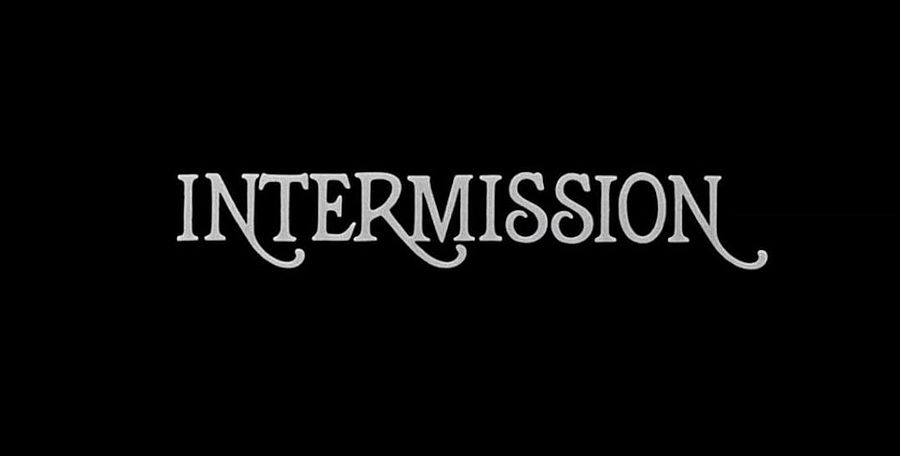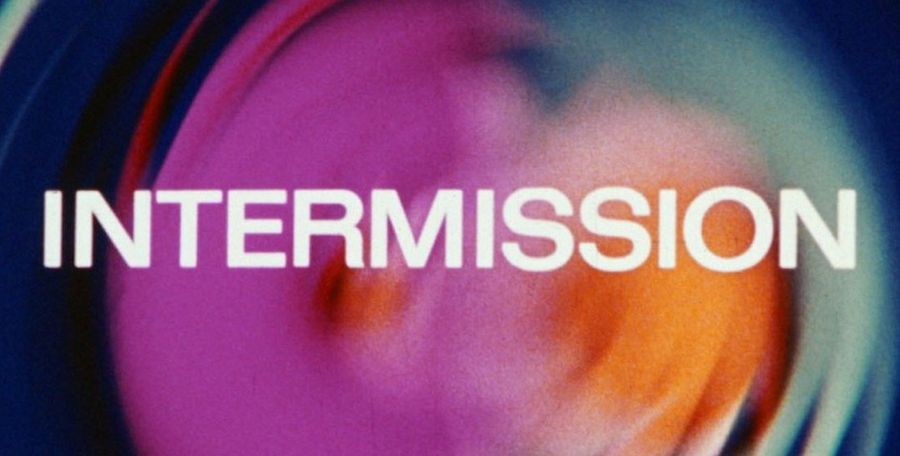Intermission: cinemas, coronavirus, VOD, and what happens next
As with every aspect of the entertainment industry, the things we took for granted before have now vanished and their return is uncertain at best, and unlikely at worst.
Live concerts in Ireland have been rescheduled until later in the year or 2021 due to social distancing measures, however cinemas can technically still operate - just with fewer numbers. Before these social distancing measures were announced, cinemas had introduced various methods to ensure public health was safeguarded.
Right now, the movie industry is in an intermission - one that's been forced on them against their will by COVID-19. Productions have shut down, release dates have been pushed back, actors are singing into their phones in a bid to keep themselves in people's feeds. Cinemas have been shuttered, staff have been furloughed or laid off, and audiences are getting their movie fix elsewhere.
Prior to the lockdown measures being enacted here in Ireland, cinemas were still open for a brief period. Cinemas had halved potential seats and blocked off seats at a two-metre distance in accordance with WHO guidelines. In some cinemas, this meant blocking seats either side of one another. For other cinemas, such as Rathmines' Stella Cinema, the seats were already in this formation beforehand.
However, with restrictions expected to be lifted by August 10th, the road back is an uncertain one and the question remains whether or not cinemas will want to open sooner in the same way that publicans are pushing for.
Graham Spurling, who runs the Movies @ chain of cinemas, said that "there would be no point in opening (before August 10th) given that there is no new product to screen." Speaking just before the August 10th reopening date was announced, Lighthouse Cinema programmer Charlene Lydon said that they're planning to reopen with the same social distancing measures in place as they had before closure.
They're already planning on getting creative to shore up the lack of new releases in cinemas. "We would love to play some of the films that missed out on a proper cinema release, they deserve their time on the big screen. We will certainly be rescheduling the David Lynch season that we had to postpone and as many other cancelled events as possible."
For somewhere like the Irish Film Institute (IFI), it's a little different as it's classed as a cultural institution.
Stephen Boylan, Press and Marketing Manager at the IFI, explains. "As a national cultural institution, we’ll be awaiting guidance from the Government in relation to next steps regarding opening and any special measures that might need to put be in place once we do reopen."
"I know the French and Spanish Governments have outlined steps for their own sectors, including social distancing in screen, and it may be that they form a blueprint for here. Obviously, we’re eager to open again as quickly as we can, with the health and safety of our customers and staff remaining our top priority."

Major releases like 'No Time To Die', 'The New Mutants' and 'Mulan' have had their release dates shelved or are rumoured to be shunting their release to streaming platforms like Disney+. For smaller movies like Neasa Hardiman's 'Sea Fever', the current situation has simply meant that her movie has gone to VOD platforms faster than expected. That being said, people are now more likely to watch movies on VOD because the option of going to the cinema is no longer there.
However, Wildcard Distribution - who were involved with 'Sea Fever' - describe themselves as a cinema-first distributor, not the other way around.
"Wildcard has always been a theatrical led Distributor and I expect that to continue post-lockdown," says Patrick O'Neill, Wildcard's MD.
"At the moment," he adds, "it’s not really like audiences have much competition for entertainment - the pubs, theatres, and cinemas are closed, there is less live TV content, so it doesn’t feel like it’s an accurate reflection. Successful launches on VOD at the moment have to be seen as an outlier given the current circumstances."
"We have made the films available to all Irish cinemas to play when they re-open, so are still hopeful they can be experienced on the big screen like the filmmakers intended in a few months’ time."
For filmmakers themselves, it's a strange time. On the one hand, they want their work to be seen by as many people as possible, but on the other hand, is the cinema not the chosen destination for such work?
In 'Sea Fever', director Neasa Hardiman weaves together a story of a crew trapped aboard a science vessel in quarantine, unable to determine if and how they'll survive. To say that the movie is relevant to our current circumstances is an understatement - it's like it was made specifically for it. For Neasa Hardiman, it's a movie about "urgent economic need versus urgent health need, and the dilemma of saving ourselves versus protecting our broader community."
"When I was writing it, and when we were filming, we were thinking about those questions as they relate to climate crisis. But the essential cultural conflict of economic drive versus bigger environmental needs forms part of our current problems in exactly the same way. So although the specifics are coincidental, the film feels so appropriate because it's touching on structuring cultural conflicts that complicate both our climate crisis and the current pandemic."
The movie features "infra-sound" for the movie's underwater sequences with a soundscape made for 5.1 surround sound, not to mention key images meant to be seen at scale.
"It's sad that we haven't been able to share that with people in the intended cinema setting," Hardiman admits. "But on the other hand, of course I'm thrilled that the film has found an audience and that it's available to see at home. We were lucky enough to hit the No.1 spot on iTunes during the film's opening weekend, and that was thrilling."
But when it comes to releasing on VOD versus releasing in cinemas, is there a difference? Was 'Sea Fever' made with cinema being the final destination? "I think our business has changed so radically in the last ten years, there is no be-all, end-all, final destination for any screen work," Hardiman believes. "While 'Sea Fever' is designed for, and works best in, a theatrical setting, the film sustains and works on small screens too. You can still enjoy it without the infra-sound!"

While filmmakers may have acclimated themselves to the reality that movies will go anywhere now, cinemas are more inclined than ever to go head-to-head with movie studios to preserve the theatrical window between cinema release and home release.
Universal and AMC Cinemas are currently locked in battle with one another over preserving the theatrical window for its releases.
Universal pushed forward with the VOD release of 'Trolls: World Tour', bypassing its intended cinema release entirely. The studio has been hailing its success with the VOD-first strategy. Estimates suggest that Universal made around $95 million in rentals and sales online, due in part to the favourable terms for VOD.
In normal circumstances, a studio would split the box office with the cinemas showing them.
In some cases, it's an even split, potentially moving to 60% for the studio in some cases. After a certain amount of weeks with any movie still running, cinemas begin to earn more and more of that split back.
For VOD, it's very different. Universal takes roughly 80% of its earnings on a movie released on VOD, with a 20% cut going to the platform that sold it. The cut on 'Trolls: World Tour' was so favourable for Universal that they earned more in three weeks from the VOD release than the original movie did after five months in cinemas.
The fallout of this, however, is that AMC - one of the world's largest cinema chains, and operates as Odeon Cinemas here in Ireland - have announced that they intend to boycott all releases from Universal. AMC said that they "will not be showing movies that fail to respect the windows as it does not make any economic sense for us," adding that "the theatrical side of this industry generated an all-time record income of $42 billion last year and the movie distributors’ share of this was about $20 billion."
Universal, however, believe that the future is still in cinemas, except that PVOD - that's Premium Video On Demand, movies available online the same day as cinemas - will be part of it. "It's not going to be a replacement," NBCUniversal chief Jeff Shell told investors on an earnings call earlier this month, "but it will be a complementary element and we’re just going to have to see how long that takes and where it takes us."

It wasn't meant to be this way, of course.
According to data compiled by Wide Eye Media, approximately 15 million cinema tickets were sold in Ireland in 2019. In 2020, before the pandemic hit, the projections were just as rosy with an anticipated audience of around the same. Box office revenue in Ireland from 2018 to 2019 increased by 0.12%. Even if cinemas reopened tomorrow, it's highly unlikely that that figure will be reached in 2020.
The reality is that social distancing in cinemas in Ireland and around the world will halve the potential audience for each screen. On top of that, studios have pushed back many release dates to 2021, indicating that they are simply not prepared to risk box office failure when there are millions, if not billions, on the line.
The big question is whether or not the movie-going audience will be there when this intermission ends. They may have simply given up on the medium as streaming services and PVOD can provide a modicum of the same experience and on their own terms. The shared viewing experience of cinemas can't be recreated at home, but given how a vaccine for COVID-19 isn't coming any time soon, audiences might be prepared to live without it for the foreseeable future.
Are people still going to be in their seats when intermission ends, or will they have gone home?

